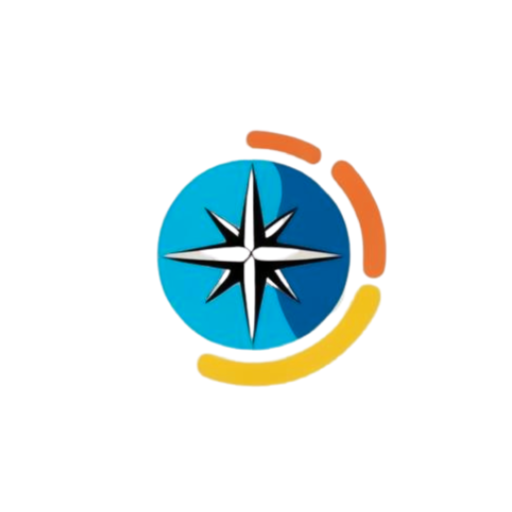Historical Timeline
c. 4000 BCE – Earliest known settlements in the area now called Georgia, with evidence of ancient civilizations and wine production
c. 1st century CE – Establishment of the Kingdom of Iberia (Georgian Kingdom)
324 CE (Tuesday, January 6) – Conversion to Christianity: Georgia adopts Christianity as the state religion, one of the earliest countries to do so
1068 (Saturday, August 12) – King David IV establishes a golden age of Georgian culture and territorial expansion
1204 (Wednesday, April 14) – Mongol Invasions: Georgia is ravaged by the Mongol Empire
1783 (Wednesday, July 24) – Treaty of Georgievsk signed, establishing Georgia’s protectorate under Russia
1801 (Monday, February 18) – Annexation by Russia: The Kingdom of Georgia is absorbed into the Russian Empire
1918 (Thursday, May 26) – Declaration of independence: The Democratic Republic of Georgia is established
1921 (Wednesday, February 25) – Soviet Invasion: Georgia is incorporated into the Soviet Union
1991 (Monday, April 9) – Independence from the Soviet Union: Georgia declares its independence from the USSR
2003 (Wednesday, November 23) – Rose Revolution: Peaceful protests lead to the resignation of President Eduard Shevardnadze and new democratic reforms
2008 (Friday, August 8) – Russo-Georgian War: Georgia and Russia clash over the separatist regions of South Ossetia and Abkhazia
2011 (Saturday, May 26) – Tbilisi protests: Violent clashes during opposition protests in Tbilisi
2020 (Thursday, November 5) – COVID-19 pandemic: Georgia implements stringent measures to combat the spread of the virus
2021 (Friday, July 15) – Flooding in Tbilisi: Flash floods devastate parts of the capital, displacing hundreds of people
2023 (Saturday, August 12) – Tornado in Western Georgia: A severe tornado hits the coastal region, causing damage to buildings and infrastructure
2024 (Monday, July 8) – Severe heatwave: A record-breaking heatwave affects Georgia, with temperatures soaring above 40°C in some areas
General Information
Continent: Europe (Eastern Europe, Caucasus region)
Location: Located at the crossroads of Eastern Europe and Western Asia, bordered by Russia to the north, Azerbaijan to the southeast, Armenia to the south, Turkey to the southwest, and the Black Sea to the west.
Capital: Tbilisi
Language: Georgian (official), minority languages include Russian, Armenian, and Azerbaijani
Currency: Georgian lari (₾)
Population: ~3.7 million (last updated: April 2025)
Time Zone: Georgia Standard Time (GET, UTC+4)
Topography
Borders: Russia, Azerbaijan, Armenia, Turkey, Black Sea
Landscape: Mountainous (Caucasus mountains), fertile valleys, coastal plains, river valleys, highlands
Major Rivers: Rioni, Mtkvari, Lori, Alazani
Major Mountains: Mount Shkhara (highest point), Mount Kazbek, Caucasus Mountain Range, Gomismta Range
Deserts: None
Lakes: Lake Paravani, Lake Ritsa
Volcanoes: Mount Aragats (dormant)
Highest Point: Mount Shkhara – 5,201 m (17,059 ft)
Lowest Point: Kura River – 0 m (sea level)
Climate: Diverse, with subtropical on the coast, continental in the inland regions, and alpine in the mountainous areas
Geological Features: Part of the Caucasus mountain range, tectonically active region due to the collision between the Eurasian and Arabian plates, active fault lines and seismic activity
Demography
Ethnic Groups: Predominantly Georgian (~86%), with minorities of Armenians, Russians, Azeris, and others
Religion: Georgian Orthodox Christianity (~83%), Islam (~10%), other religious groups (~7%)
Urban Population: ~57% (last updated: 2023)
Population Notes: Georgia has a rich cultural heritage, influenced by Eastern European, Middle Eastern, and Russian cultures. It is known for its winemaking, and the majority of the population practices Orthodox Christianity.
Culture
Famous For: Wine production, ancient architecture, traditional music, dance, and cuisine
Cuisine: Khachapuri (cheese-filled bread), Khinkali (dumplings), Satsivi (chicken in walnut sauce), Pkhali (vegetable pate), Wine (Georgia is one of the oldest wine-producing countries)
Arts: Ancient art, sculpture, and architecture, Georgian polyphonic singing, Shota Rustaveli (author of “The Knight in the Panther’s Skin”)
Sports: Football (soccer), rugby, wrestling, judo, basketball
Economy
Economy Type: Developing economy with significant agricultural and tourism sectors
GDP: Approx. $21.3 billion USD (last updated: 2024)
Major Industries: Agriculture (wine, fruits, vegetables), tourism, textiles, mining (manganese, copper), and chemicals
Key Exports: Wine, machinery, vehicles, ferrous metals, and agricultural products
Unemployment Rate: ~12.7% (last updated: 2024)
Economic Regions: Agriculture is most prominent in the valleys and lowland areas, while tourism is growing rapidly, particularly in Tbilisi and along the Black Sea coast.
Government
Government Type: Unitary parliamentary republic
Head of State: President Salome Zourabichvili (as of April 2025)
Head of Government: Prime Minister Irakli Garibashvili (as of April 2025)
Legislature: Unicameral Parliament of Georgia
Constitution: The Constitution of Georgia, in effect since 1995, provides for a democratic republic with separation of powers
Travel Attractions
Tbilisi: Old Town, Narikala Fortress, sulfur baths, Holy Trinity Cathedral
Batumi: Black Sea coast, botanical garden, architecture, beaches
Vardzia: Cave monastery complex
Uplistsikhe: Ancient rock-hewn town
Kakheti: Wine region, monasteries, vineyards
Kazbegi National Park: Mount Kazbek, Gergeti Trinity Church, hiking
